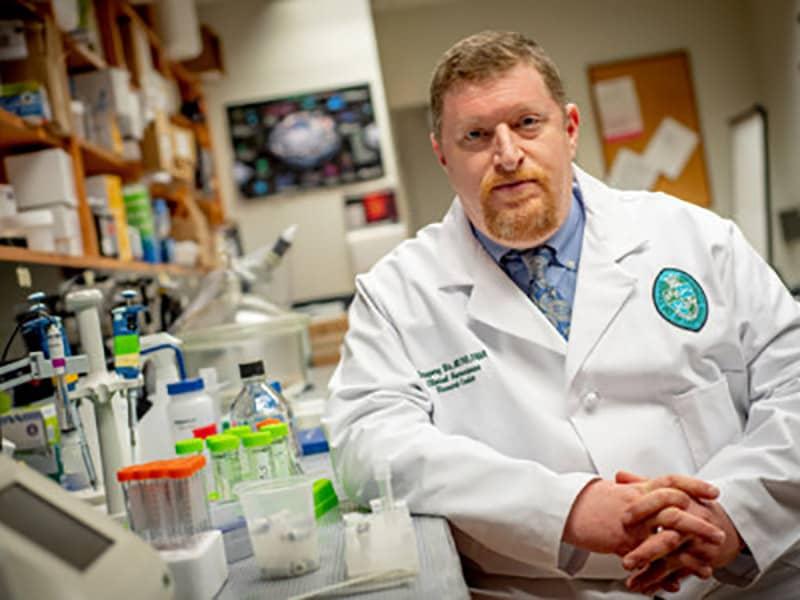Tulane launches ‘biobank’ for researchers studying causes of long COVID-19
For most people, a mild case of COVID-19 lasts less than two weeks. But some COVID-19 “long-haulers” face a range of symptoms — dizziness, brain fog, headaches and loss of their sense of smell — that can linger for months. Researchers can’t explain exactly why.
Tulane University has launched a new COVID-19 “biobank” of blood and cell samples from COVID-19 survivors to help researchers investigate what causes some to recover quickly from the virus while others face lasting symptoms. The COVID-19 Biobank and Library at Tulane (COBALT) will safely store hundreds of biological samples that will be available to scientists at the university as well as external collaborators across the country.
“These collected samples are the proverbial ‘gift that keeps on giving’ when it comes to allowing the medical and scientific community to access potential clues behind these long-term health problems associated with COVID-19,” said Dr. Gregory Bix, director of COBALT and the Clinical Neuroscience Research Center at Tulane University School of Medicine. “We don’t know what biomarkers for long COVID-19 might be relevant, so it is important to collect these tissues so that we can go back to them with specific scientific questions as our understanding of COVID-19 evolves.”
About 10% to 30% of individuals who are diagnosed with COVID-19 will have lingering symptoms which can affect the heart, lungs, kidneys, skin and brain. Long COVID-19 symptoms include losing the sense of taste and smell, memory problems, fatigue, muscle aches, trouble sleeping, hair loss and more. The range of symptoms varies widely, but doctors call the syndrome Post-acute sequelae SARS-Cov-2 infection or PASC. Although age, obesity, and other underlying health issues are risk factors for PASC, research suggests that nearly 20% of suspected cases are in adults aged 18 to 34 with no chronic medical conditions.
Bix plans to use samples from COBALT for his research into the alpha5beta1 integrin, a cell receptor that the virus uses to attack and infect cells.
“We believe that it might also be implicated in long covid neurologic symptoms such as brain fog,” Bix said. “We will look in blood samples collected as a part of this biobank to determine whether the receptor is elevated in samples that might correlate with post-COVID patients’ clinical neurologic complaints.”
Last year, Bix and neurologist Dr. Michele Longo started the Tulane Neurology Post-COVID Care Clinic, one of the first clinics established in the southeast dedicated to treating patients struggling with long COVID.

